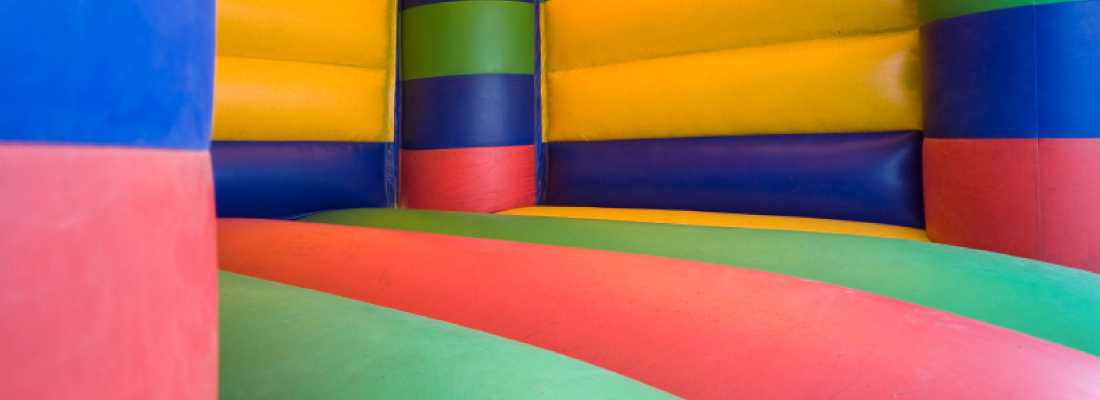June 2014

Damages awarded for fun park injury
The ACT Supreme Court has awarded a student $4.6 million in damages after a failed attempt at a backwards somersault at a NSW amusement park left him a quadriplegic.
Benjamin Alan Ackland was 21 when he visited the park on October 10, 2009, on a “mystery bus tour” arranged by his college. He was then a resident of Austin College at the University of New England, in Armidale, NSW, studying a dual degree in arts/law.
The amusement park, Green Valley Farm, on New Valley Road near Tingha, NSW, had several attractions, including a device known as a “jumping pillow”, a large inflatable pillow measuring 10 metres by 20 metres, designed for park visitors to jump on, like a trampoline.
Mr Ackland’s injury followed a failed attempt at a backwards somersault when he landed on his head on the jumping pillow.
Patrick Joseph Stewart, Beryl Ann Vickery (née Stewart) and Michael Patrick Stewart were the property’s owners and occupiers. They conducted the amusement park to which the public were invited to enter after paying an entry fee.
Mr Ackland claimed his injury was caused or contributed to by the trio’s negligence on eight grounds, including failing to provide proper safety instructions and supervision; and failing to provide signage that prohibited somersaults and inverted manoeuvres.
The park owners argued Mr Ackland’s injury arose solely from his own negligence and participation in a dangerous recreational activity.
But Justice John Burns ruled Green Valley Farm’s owners were negligent in failing to prohibit such manoeuvres on the jumping pillow; failing to provide a sign or notice prohibiting them; failing to inform Mr Ackland they were prohibited; and failing to stop him doing them.
He found they had breached their duty of care because they were aware of the manufacturer's recommendation "somersaults or inverted manoeuvres" on the jumping pillows should not be permitted.
“I am satisfied [the park owners] were negligent, and this negligence caused the injury sustained by [Mr Ackland]. Nothing in the [NSW Civil Liability Act] operates to avoid this finding or relieve [the park owners] of their obligation to compensate [him],” he said.
Mr Ackland had consumed some alcohol that day, but Justice Burns found no suggestion his alcohol consumption played any part in the incident. Mr Ackland told the court he did not feel “inhibited” by the alcohol he had drunk. The farm owners amended their defence in April 2013 to remove any reference to Mr Ackland’s intoxication.
Dr Johnn Olsen, who gave evidence for Mr Ackland, said Mr Ackland had sustained a severe neck flexion injury when the back of his head first made contact with the surface of the jumping pillow. That resulted in a very severe cervical spine injury.
Dr Olsen estimated Mr Ackland had bounced to a height that allowed his body to fall about one metre from its maximum height above the pillow to the point at which his head struck the surface. He calculated Mr Ackland’s velocity at the time his head first struck the pillow was 4.43 metres a second.
Based on the biomechanics and strength of the cervical spine, Dr Olsen said Mr Ackland’s injuries were predictable and could be expected should a backward somersault attempt fail, as it did.
Justice Burns said: “I am not persuaded it would have been obvious to a reasonable person in [Mr Ackland’s] position there was a risk of serious neck injury in attempting to perform a back somersault on the jumping pillow.
“A reasonable person would have acknowledged, as [Mr Ackland] did, there is a risk of some minor harm if they failed to perform the manoeuvre properly. But perception of risk of minor harm is not the equivalent of perception of risk of a serious neck injury.
“I am not satisfied [the park owners] have established [Mr Ackland] was guilty of contributory negligence.”
Justice Burns awarded $4,626,241.84 for past and future loss of earnings, accommodation, medical and other care costs.
Mr Ackland’s lawyer, Maurice Blackburn consultant solicitor Andrew Finlay, said: "The accident has had devastating consequences for [Mr Ackland]'s health and future working life. He has at all times remained stoic and is a positive young man in spite of his significant disability.”
Mr Ackland said: "I am very pleased with the outcome. This decision will be an enormous step to supporting my independence now and in the future. It means a great deal to me."
Now 26, Mr Ackland is a national wheelchair rugby player and member of the NSW Gladiators team.
Carter Newell partner and former AILA Queensland president Rebecca Stevens and associate Allison Bailey compared the decision to the Queensland Appeal Court’s decision in State of Queensland v Kelly, in which Queensland lost its appeal against a Supreme Court decision that found it liable for an Irish tourist's injuries sustained when he jumped into a Fraser Island lake.
Evan Joseph Kelly became a partial tetraplegic after the September 2007 incident.
Supreme Court Justice Duncan McMeekin found Queensland had breached its duty of care in failing to provide adequate warning of the dangers inherent in visiting Lake Wabby and failing to ensure signs leading to the lake better identified potential dangers.
Ms Stevens and Ms Bailey said the recent Queensland and Australian Capital Territory courts’ considerations of what constituted an obvious risk reinforced the difficulties of proving obvious risk from activities conducted in recreational settings.
“The magnitude of the benefit to a defendant who successfully argues a risk was so obvious as to require no warning justifiably results in a strict application of such a provision. It is clear from existing precedent the threshold to demonstrate a risk is obvious and, as such, does not require a warning, is high.
“These decisions reinforce the court's traditional attitude that defences available [for] dangerous recreational activities and obvious risks will be reserved for only the most clear of cases.”
Ackland v Stewart, Vickery and Stewart [2014] ACTSC 18, 21/2/2014; State of Qld v Kelly [2014], QCA 27, 25/02/2014